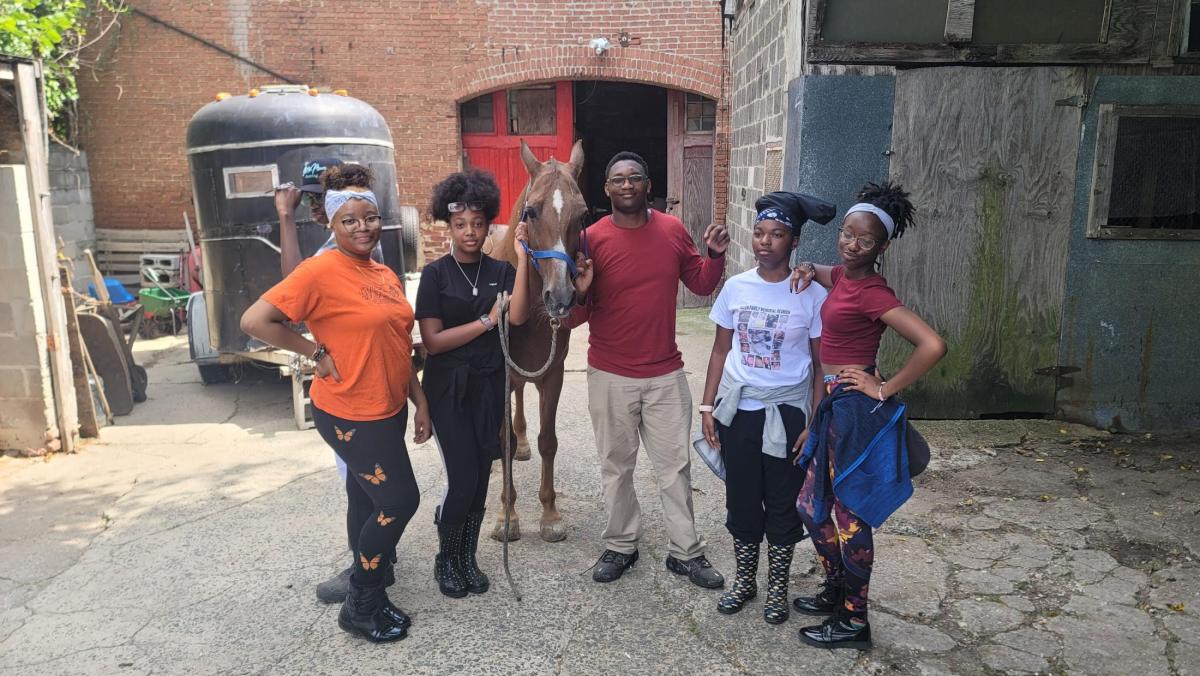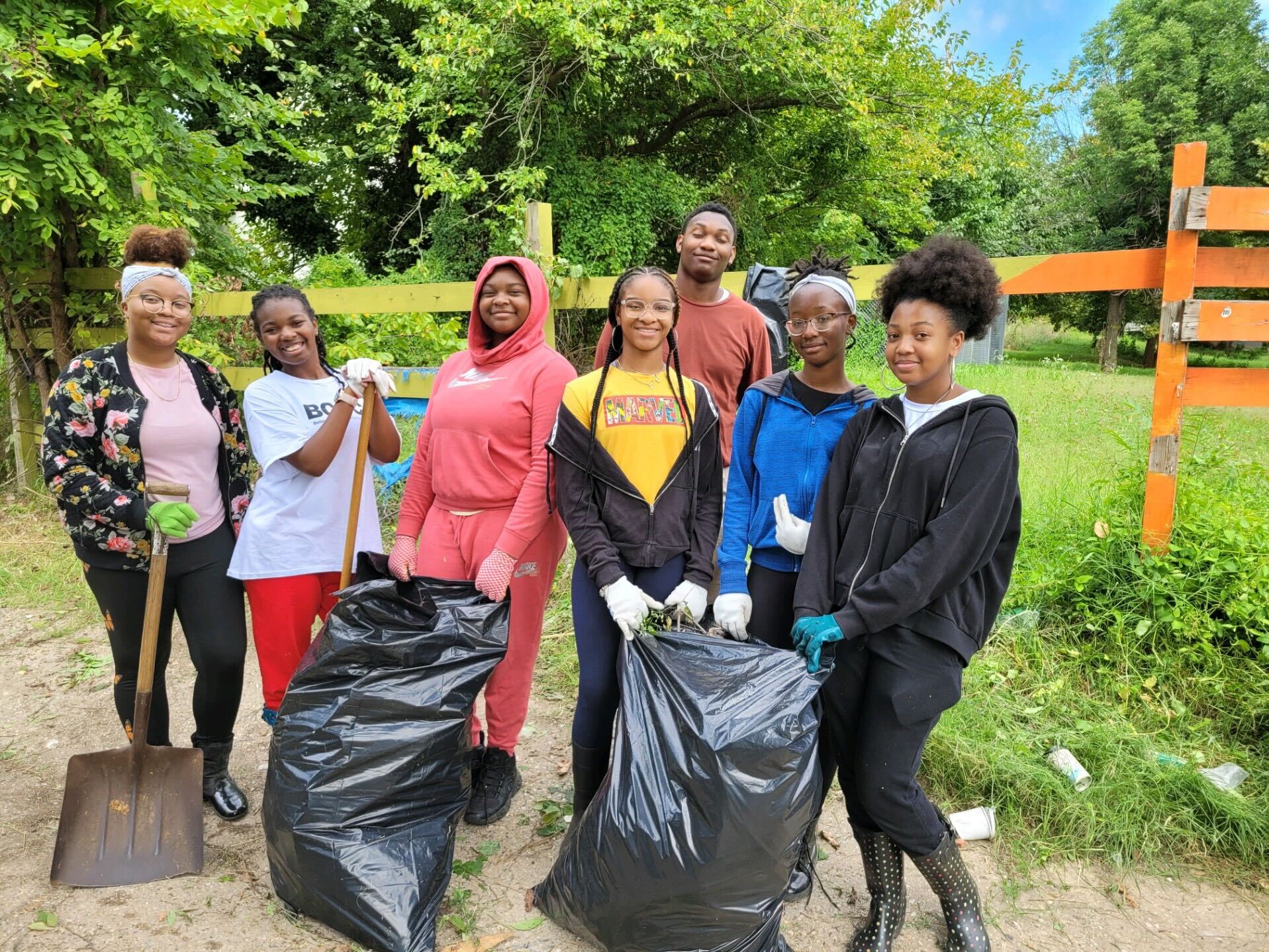
Although Mark Jews has family that hails from the Eastern Shore—where wild ponies roam along the coast—he says he’s never been a “farm guy.”
“I’m a city person through and through,” says Jews, a founding partner of Holistic Health Counseling and Coaching, a mental health resource for kids and families throughout Baltimore.
In fact, the 45-year-old’s first horseback ride was just days ago. A ball of nerves, Jews—with the guidance of a handler—rode about half of a block along the streets of Southwest Baltimore near Hollins Market.
“I had never even touched a horse before,” he says. “To be up there that high was humbling.”
Ironically, the milestone for Jews capped off a week spent helping Baltimore youth hone their own equestrian skills as part of a new arabber apprenticeship program, Training for Wellness, which was recently established with assistance from community groups. Throughout the past few weeks, young people ages 14-24 have mastered basic care. And soon, they’ll gain the techniques to carry on the work of actual arabbers—Charm City’s cherished street vendors known for bringing fresh produce to local communities on a horse-drawn cart.
A native of East Baltimore, Jews grew up watching arabbers deliver fruits and vegetables to neighbors. Today, he still appreciates their willingness to bring nutritious fare to those who can’t easily access it.
“Arabbing is interwoven into Baltimore’s rich history, especially near our waterways,” Jews says. “They do this out of the kindness of their hearts. There’s not a lot of money in it for them. They just love the culture and they want to see it preserved.”
Keeping that in mind, Jews—determined to expose young Baltimoreans to nature and teach them important life skills—partnered with Eastern Shore horse trainer Charish Arthur, who then connected him to arabber James Chase (more fondly known as Fruit) and NaTiece Richardson, an equine specialist at one of Baltimore’s last horse stables on Fremont Avenue. There—as well as at the Bruce Street stables, housed in Southwest Baltimore—the youth learn “straight-up, basic, horsemanship,” as Arthur puts it.
Free, three-hour lessons, which are advertised through word of mouth, teach students everything from how to safely walk around a horse to how to groom and saddle one. While cultivating soft skills, such as conflict resolution and responsibility, the students walk away with hard-earned cash while reaping the therapeutic benefits of spending time with the horses.
“Therapy is a great thing, but not everyone can come into an office with a couch,” Jews says. “The stables are a safe space for our young people to go and to indulge in things they love.”


And so far, according to their teachers, the students truly love the work. Chase (aka Fruit) says that most even take pride in scooping up manure, often staying after hours and on weekends to maintain the stalls. “They enjoy taking care of the horses, and I enjoy watching them and teaching them,” he says.
As the program—which eventually has plans to operate year-round, but hopes to fit another session in this fall—gains resources, Chase hopes to introduce new and returning students to the vending aspect of arabbing, so that they can make rounds themselves.
“That’s the ultimate goal—to see a new generation of arabbers come back, man, that would be a beautiful thing,” he says. “I don’t want these kids to think the only thing in life is standing on street corners, selling drugs, and making mischief. They can go out there and get other careers and stuff like that. But if times get rough, this is a trade they can fall back on.”
Arthur, who mentions she’s been saddened by the recent violence involving young squeegee workers, agrees with this sentiment, saying she’s glad to offer city youth a new means of working hard and gaining vital coping skills.
“You know how [they say] ‘The right thing at the right time is like water for your soul?’ That’s what I’m seeing with these kids,” she says. This week, “we’ve had some serious events befall a few of our participants. I feel like they have options now for learning how to cope with things that no one can control. Those things will serve them going forward, whether our program is running or not.”
